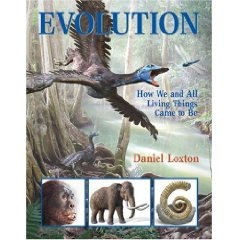Remarkable reading for the holidays!
 A month or more ago, someone on Twitter tweeted a link to the Kindle version of The Atheist’s Guide to Christmas for just $1. Like a lot of people, I consider a buck “why not?” money for anything that interests me. I followed the link and downloaded the book. It sat on my iPad for a while, half forgotten.
A month or more ago, someone on Twitter tweeted a link to the Kindle version of The Atheist’s Guide to Christmas for just $1. Like a lot of people, I consider a buck “why not?” money for anything that interests me. I followed the link and downloaded the book. It sat on my iPad for a while, half forgotten.
Sometime later, while I was eating alone in a restaurant in Phoenix, I cracked the cover (so to speak) and began reading it. It wasn’t at all as I expected. It was so much better.
You see, I expected some sort of anti-religious rant against Christmas and everything concerned with it. Not sure why I expected this — perhaps it’s got something to do with the conservative media’s perceived “war against Christmas” that crops up every year here in the U.S. If you believe the conservatives on FoxNews, etc., anyone who is not Christian hates Christmas and wants to destroy it. Following that line of reason, the folks who should hate it most are atheists, since they don’t believe in any religious doctrines at all.
But that’s not what this book was all about.
The Atheist’s Guide to Christmas is a collection of 42 stories and essays from a variety of atheist scientists, comedians, philosophers, and writers. They include reminiscences (eg., Phil Plait’s “Starry, Starry Night”), celebration suggestions (eg., Josie Long’s “Things to Make and Do at Christmas”), scientific information (eg., Brian Cox’s The Large Hadron Collider: A scientific Creation Story”), historical information (eg., Claire Rayner’s “How to Have a Peaceful Pagan Christmas”), and tall tales (eg., Nick Doody’s “How to Understand Christmas: A Scientific Overview”).
Sure, there was the takeoff on Jeeves and Wooster by Richard Dawkins in which Woofter and Jarvis engage in a conversation about the existence of God, Jesus’s part in the Holy Trinity, and bible inconsistencies. But that was just one small chapter in a very large book. Most of the book is very positive and uplifting, encouraging non-believers to enjoy the Christmas season the way most believers do: with decorations, big meals, gift giving, and gatherings of friends and family members.
The book makes it clear that you don’t need to believe in God or religious doctrines to enjoy a holiday that just happens to coincide with the winter solstice. (Not exactly a coincidence, but try to explain that to a believer.) It also offers plenty of helpful tips and advice for getting along with believers during a holiday that may have some serious religious significance to them.
I’m about halfway through the book — although I do admit that I began reading by using the interactive table of contents to pick and choose among the essays I wanted to read first. While some chapters are better than others as far as their relevance to my personal thoughts about Christmas, I’m certain that any atheist would find something of value in its pages. Likewise, I don’t think any believers would be offended by its contents. As the book’s introduction states, The Atheist’s Guide to Christmas is an “atheist book it’s safe to leave around your granny.” Indeed, I’m certain that even believers would find a lot of content in this book to help make their Christmas celebrations more enjoyable — without threatening their beliefs.
The Atheist’s Guide to Christmas was edited by Ariane Sherine and published by Friday Books. All book royalties are donated to charity — how’s that for the spirit of Christmas giving?

 (Might I suggest starting with Daniel Loxton’s excellent book,
(Might I suggest starting with Daniel Loxton’s excellent book,